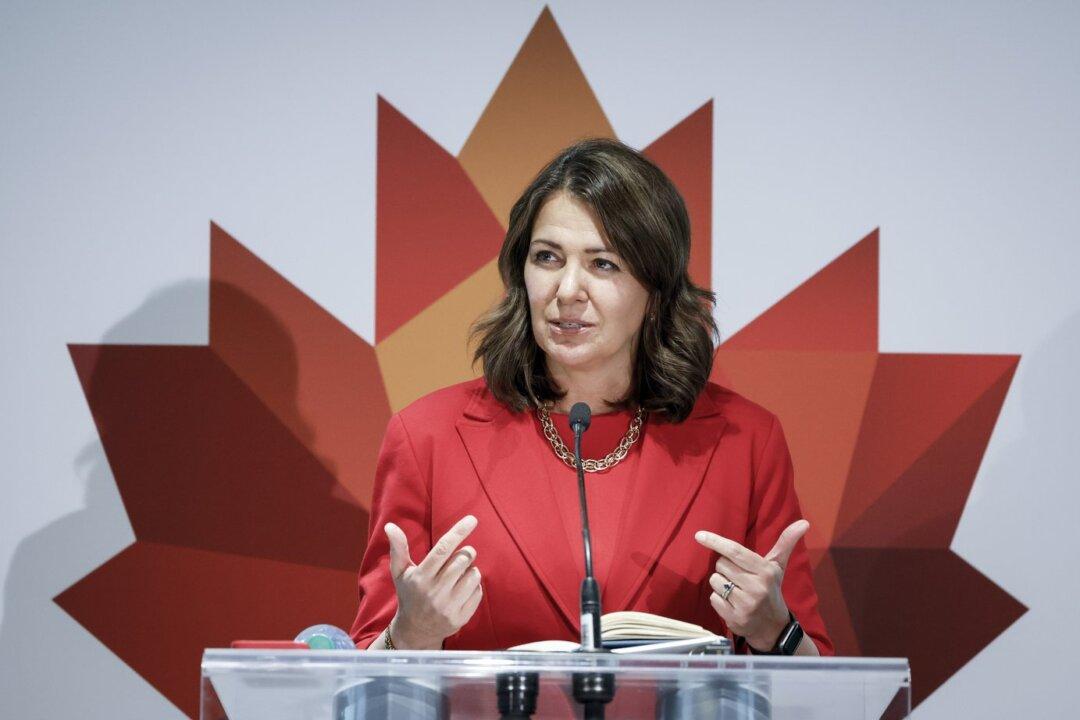Alberta Premier Danielle Smith backed her government’s option to use a sovereignty motion against the federal government’s push on net-zero regulations, as she raised concerns over the risk of the power grid failing in the province.
“The federal government is creating so much uncertainty around what is going to be possible,” she said during a radio call-in show on Sept. 30.





